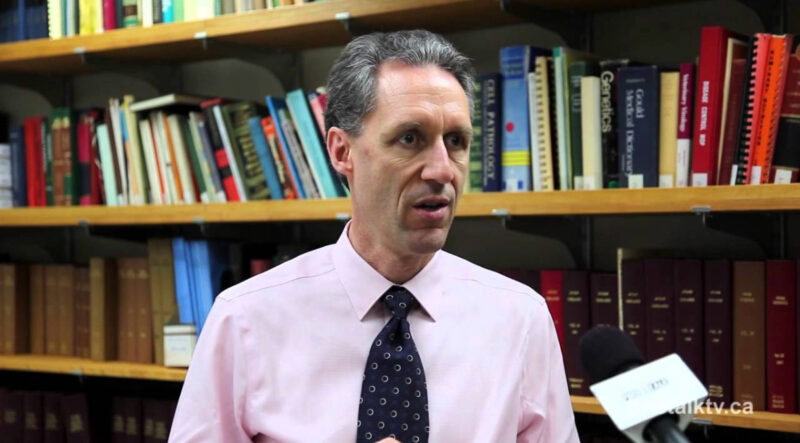‘Imagination’ runs wild with bumper Pink Salmon returns
TV station removes aquaculture news segment that contained numerous false claims by an anti-salmon farming campaigner.
By Fabian Dawson
SeaWestNews
Anti-salmon farming activists in British Columbia, world renowned for their propaganda against open-net aquaculture, are letting their imaginations run wild with the advent of a bumper pink salmon return this year.
Pink Salmon, also referred to as Humpback Salmon, are booming all over the Pacific Ocean and have expanded their range into the Atlantic Ocean, reaching Norway, the UK and Newfoundland. Alaska and Russia are also dealing with massive runs of pink salmon, according to a new report by the North Pacific Anadromous Fish Commission (NPAFC).
Here in British Columbia, the “abundance” has led to projections of Pink Salmon returns to the Fraser River to as high as 11.6 million, from an original estimate of between 6.1 million and 8.6 million fish.
All the worldwide data, showing that global ocean conditions now favour pink salmon, has been sidelined by the activists who are attempting to hijack the narrative by falsely claiming that the high returns in British Columbia are due to the closure of some salmon farms.
Anti-salmon farming campaigners are presenting these false claims to the media to try and influence negative political and public opinions of salmon farming while ignoring the fact that pink salmon are booming everywhere regardless of whether salmon farms are active or not, said Michelle Franze, a spokesperson for the BC Salmon Farmers Association (BCSFA).
“These claims that high pink Salmon returns are due to the removal of salmon farms are the latest in a series of incorrect conclusions based on false assumptions from someone with an anti-salmon farming agenda… The claims regrettably being promoted and unchallenged on mainstream news.,” she said.
This week, CTV News Vancouver, removed a news segment from its website after it was identified that the broadcast contained numerous false claims by an anti-salmon farming campaigner.
The original segment aired false claims that BC’s pink salmon population is dramatically increasing after the province shut down more than a dozen salmon farms and that there’s a direct correlation between fish farms and wild salmon.
“On behalf of the thousands of people working in the BC salmon aquaculture sector, we thank CTV News Vancouver for removing a TV news segment that included false claims,” said Franze.
Over the years, campaigns by anti-fish farming groups, have oversimplified complex aquaculture issues leaving British Columbians caught in a fog of competing politicized agendas, contested science, and misinformation.
The courts and government scientists in Canada and the US have already rejected the falsehoods propagated by anti-fish farming activists, saying there is no merit to their claims and that the evidence shows salmon farming poses less than a minimal risk to wild stocks.
Dr. Gary Marty, a veteran fish pathologist, who for the past two decades worked with the Animal Health Centre of BC’s Ministry of Agriculture, Food, and Fisheries, said campaigns against salmon farms, like the ones raging in British Columbia, often use imagination and fear to push their agendas.
Dr Marty said it has become common in the realm of those opposed to open-net aquaculture to come up with an idea of what they think is going on and then design an experiment to demonstrate their hypothesis or that their imagination is correct.
“The challenge we get is when that imagination starts to drive public policy, especially in the area of fish diseases or fish health,” said Dr Marty, in a recent edition of the Salmon Farming: Inside & Out podcast.
“The frustrating part for me is that the imagination is getting more press that the evidence…imagination can go much faster than evidence,” said Dr. Marty, who has co-authored 59 peer reviewed scientific publications on fish health and diseases.
The imagined negative impacts on fish farming are then used to generate fear, he said.
“Fear generates an immediate response against salmon farming. Knowledge can overcome fear, but that takes years and decades,” said Dr Marty, pointing to a much-publicized report by activists who had falsely claimed in 2007 that Pink Salmon were going extinct.
The latest fearmongering campaign being used by the activists comes as the Federal Government works on a Transition Plan for BC’s aquaculture industry that will impact more than 4,700 jobs mainly in indigenous and non-indigenous coastal communities and $1.2 billion in economic activity annually.
A decision on how to move forward with the Transition Plan is expected next year after further consultations with First Nations, coastal communities, stakeholders and the salmon farming industry.
About 40 percent of the BC in-ocean salmon farming sector has already been closed, despite DFO scientists and court rulings stating that the salmon farms in BC pose less than a minimal risk to wild stocks.
“The government is threatening to shut down the salmon farms for reasons that I know are not going to bring back wild salmon,” added Dr. Marty.
You Tube file image of Dr Gary Marty

